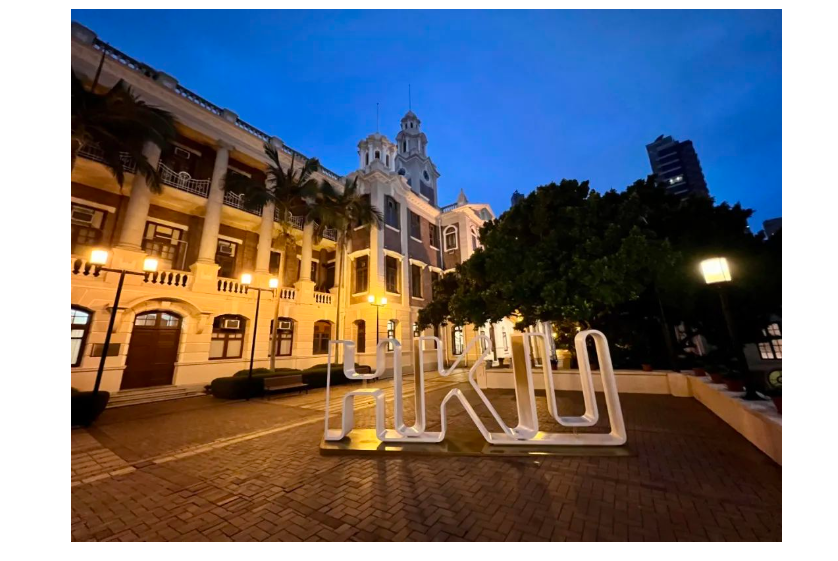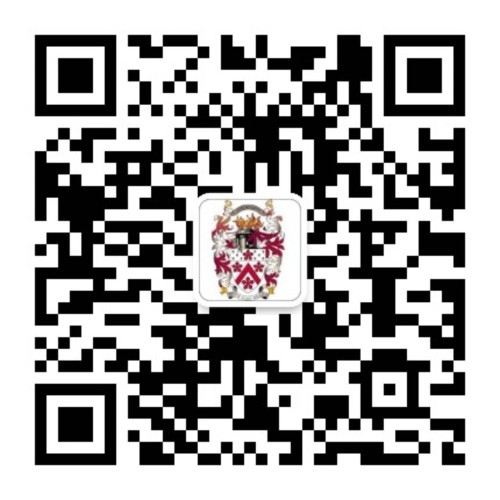Alumni Insights on Career #BestFit
In career planning, positioning is crucial. Whether it's the initial positioning after graduating from college or the repositioning of professionals, it can play a guiding role in personal career development. As a college counselor, I am often asked by students and parents about what major to choose in college, which subjects to take in high school, and which university is more suitable for oneself (or their child). As an alumni liaison, I also frequently ask our alumni what they want to do after graduating from university. All these questions are related to career choices, and when it comes to making choices, it is essential to consider three questions:
What are the options out there?
what do I have?
and how do we fit?
Cathy W DHSZ Class of 2021
Current status: Intern at uSmart Securities Hong Kong, Junior-year student at HKU
Major and University: Double Major, Bachelor of Economics and Finance, Bachelor of Asset Management and Private Banking
Adam W DHSZ Class of 2013
Current status: Product Analyst, AG Grid
Major and University: Materials Engineering and Management, Imperial College London
Leting X DHSZ Class of 2016
Current status: Senior Mechanical Designer, Smith and Anderson Canada
Major and University: Mechanical Engineering, University of Toronto
Leo J DHSZ Class of 2017
Current status: Ph.D candidate in Statitistics at Xi’an Jiaotong Liverpool University
Major and University: Applied Statistics, University of Toronto

Q: How to find internships at university?
Cathy: I have completed four internships so far. During the summer of my freshman year, I interned at the Credit Department at both Bank of China and Evergrowing Bank, where I was responsible for conducting background checks on companies, reviewing asset conditions, and loan approvals. In the summer of my sophomore year, I interned at the Investment Banking Department of CITIC Securities, where I participated in IPO and refinancing projects, as well as conducted research on securities industry topics to support the development of the investment banking department. I secured these three internships through my own resources. Currently, I am a third-year student and interning at uSMART Securities in Hong Kong, working in the wealth management department. I assist the team in providing financial management services to high-net-worth clients and conducting market research. I found this internship opportunity on LinkedIn.
The University of Hong Kong (HKU) provides a career development platform that updates job postings daily for student reference. The university organizes regular career seminars, inviting banks to share workplace information and organizing business competitions that offer job/internship opportunities to the winners.

Adam: Regarding internship resources, every university has a career development center that provides free resources and services such as job fairs, job postings, resume and interview guidance, and more. Student organizations are also valuable resources, as some can invite industry experts and provide collaboration opportunities. Members have excellent opportunities to connect with employees and managers of companies, gain early insights into industry and job information, and even participate in day-to-day work or project operations within the company. Additionally, checking company websites or searching for campus recruitment information online is an effective approach. Companies conduct campus recruitment at fixed times each year, and students can proactively search for relevant information based on their interests and target companies.
Leting: The University of Toronto has a Professional Experience Year Co-op program, which allows students to gap from school and gain paid internships that can last up to sixteen months. I participated in this program and found job opportunities through the school's platform. The university provides free guidance on resume and interview preparation, as well as one-on-one mock interviews. One crucial aspect of applying for internships is being proactive. As long as you take the initiative, you can fully utilize these resources available to you.
Q: What Skills are Employers Looking for in College Students/Graduates?
Cathy: For consulting positions, firstly, employers will look at candidates’ university and major, as well as the mastery of the specific professional knowledge required for the position. Typically, the HR department will screen resumes based on these criteria, and qualified candidates will proceed to the interview stage. Secondly, employers will look for some essential soft skills during the interview. For roles like investment consulting and banking, employers place a strong emphasis on assessing applicants' communication and presentation skills.
Adam: Consulting jobs require strong interpersonal communication skills, including understanding client needs and continuously communicating project progress with clients. Additionally, proactiveness and information researching skills are crucial. Proactively searching for industry and job information, gaining a deep understanding of specific job requirements, and assessing whether the targeted position aligns with your interests and abilities can help you better prepare your resume and interview.
Lastly, patience and persistence are important. I sent out over thirty resumes before finding my first job at PwC London. From an employer's perspective, resumes from college graduates may appear quite similar. Only during interviews can they gain a more comprehensive understanding of each candidate’s uniqueness and abilities. However, companies have limited human resources, and job competition is fierce. Therefore, I recommend that you send more applications to obtain more interview opportunities, so that you are more likely to succeed in securing job opportunities.
Leting: Firstly, resume writing skills are definitely important. A person's work attitude can be reflected in their resume. Before I started searching for internships, I attended resume guidance workshops provided by Toronto and also scheduled one-on-one resume editing and cover letter guidance services. These services were mostly offered to students free of charge.
Secondly, interview skills are crucial. Employers can assess whether you are a good fit for their position through interviews. For example, in my job, I need to collaborate with clients and teams on projects, so skills such as communication, presentation, teamwork, and problem-solving are important. In interviews for jobs like mine, employers may present applicants with real-life scenarios and ask them to provide solutions, to assess whether applicants possess essential skills.
Leo: Firstly, soft skills such as communication are essential. As newcomers to the workplace, we often encounter unfamiliar problems that require us to seek advice from colleagues and supervisors. It is important to pay attention to our attitude and approach when communicating. Time management skills are also crucial. For instance, when assigned a complex task, it is necessary to break down the task, plan the work time effectively, and ensure both the quality and timely completion of the task.
Lastly, hard skills are also key, including professional knowledge and technical skills. For example, in the field of data analysis, it is important to diligently learn and master skills such as programming, conducting research, and data filtering.
Q: What resources can you use to develop these skills?
Cathy: Firstly, it's important to make good use of the resources available at the university. At HKU, students can participate in career lectures based on their interests, engage in conversations with industry professionals to understand industry information. Secondly, it is beneficial to take on internships during holidays that align with one's career goals. Lastly, university courses and participation in student organizations can provide opportunities to develop essential workplace skills such as public speaking, communication, and teamwork.
Adam: University student organizations, as mentioned earlier, are excellent resources. Additionally, applying for summer internships, especially in fields like finance, can be beneficial for job prospects. It is advisable for college students to thoroughly understand their interests and career direction before selecting student organizations. Choosing organizations that align with their career interests will allow them to access more resources.
Leting: Toronto provides workshops, trainings on resume and interview preparation. College students should make good use of these resources and can even practice mock interviews with classmates and friends. start career planning early, focusing on areas of personal interest, and actively apply for positions while seizing every interview opportunity. By engaging in repetitive interviews, one can improve their interview skills. Accumulating work experience through university's "paid internship" programs or summer internships is highly beneficial.
I started applying for internships in my sophomore year. I had sent out many resumes without receiving responses before eventually securing an internship in junior year. Reflecting on my internship application experience, it could be a bit disappointing about not receiving any reply, but it was quite normal. Luckily, I got what I wanted at the end.
Leo: University student organizations provide excellent opportunities for personal growth and development. During my time in college, I joined the Student Union in the Department of Statistical Science, and my experience, from being a general member to a leader in the marketing department, was similar to working in a professional setting. If you have a specific position or role in mind that you aspire to, it is important to proactively understand the requirements of that position and make efforts to move closer to your goal. Determine the type of person you want to become and take proactive steps towards that direction.
Q: How do you feel as a non-local employee in the workplace?
Cathy: There are indeed significant differences between work and studying. For example, in the workplace, one needs to learn how to effectively communicate with colleagues, as well as how to adjust their mindset to adapt to high-pressure work environments and frequent overtime.
My current internship in Hong Kong is different from my previous experiences. The working hours are generally fixed, and overtime is rare. Communication with colleagues, especially with supervisors, is very smooth. Everyone is treated as equals, and the supervisors are approachable and willing to help newcomers grow. Moreover, the classmates and colleagues I have encountered in Hong Kong over the years have been wonderful. We all entered university with high scores, and both our academic abilities and personal qualities are high. As a result, there is mutual respect, smooth collaboration, and effective communication in our daily work and studies.
Adam: After graduating, I have been working in London, and as a Chinese individual, I have not experienced any differential treatment in terms of job opportunities and resources. Sometimes, I even have more opportunities. My language and cultural advantage not only provided me with more opportunities but also helped in executing my work effectively.
Leting: I am happy with my work experience so far. Our team has a friendly and supportive atmosphere, with employees from diverse backgrounds and various countries. There is a high level of cultural inclusivity, mutual respect, and support in our work environment. When I was an intern, there was a colleague who recently transitioned from an intern to a full-time employee. He understood the challenges faced by interns and provided me with valuable assistance in my work.
Leo: Before pursuing my Ph.D., I had only one full-time work experience, which lasted for approximately a year. During that time, my colleagues were exceptionally friendly and willing to help me. There was one colleague who was a few years older than me and took special care of me. Whenever I had questions, she patiently provided me with answers and guidance.
For students who are about to enter university or the workforce, I would recommend using career exploration tools such as the Holland Code career interest assessment, assessments for career values, and personality trait assessments to help understand suitable academic and career paths. In university, it is important to identify development goals, actively connect with resources, participate in relevant club activities, attend lectures, take internships or research projects to accumulate work experience, and develop transferable skills. Additionally, it is crucial to continuously re-assess goals and build strengths for the future transition into the workforce.






